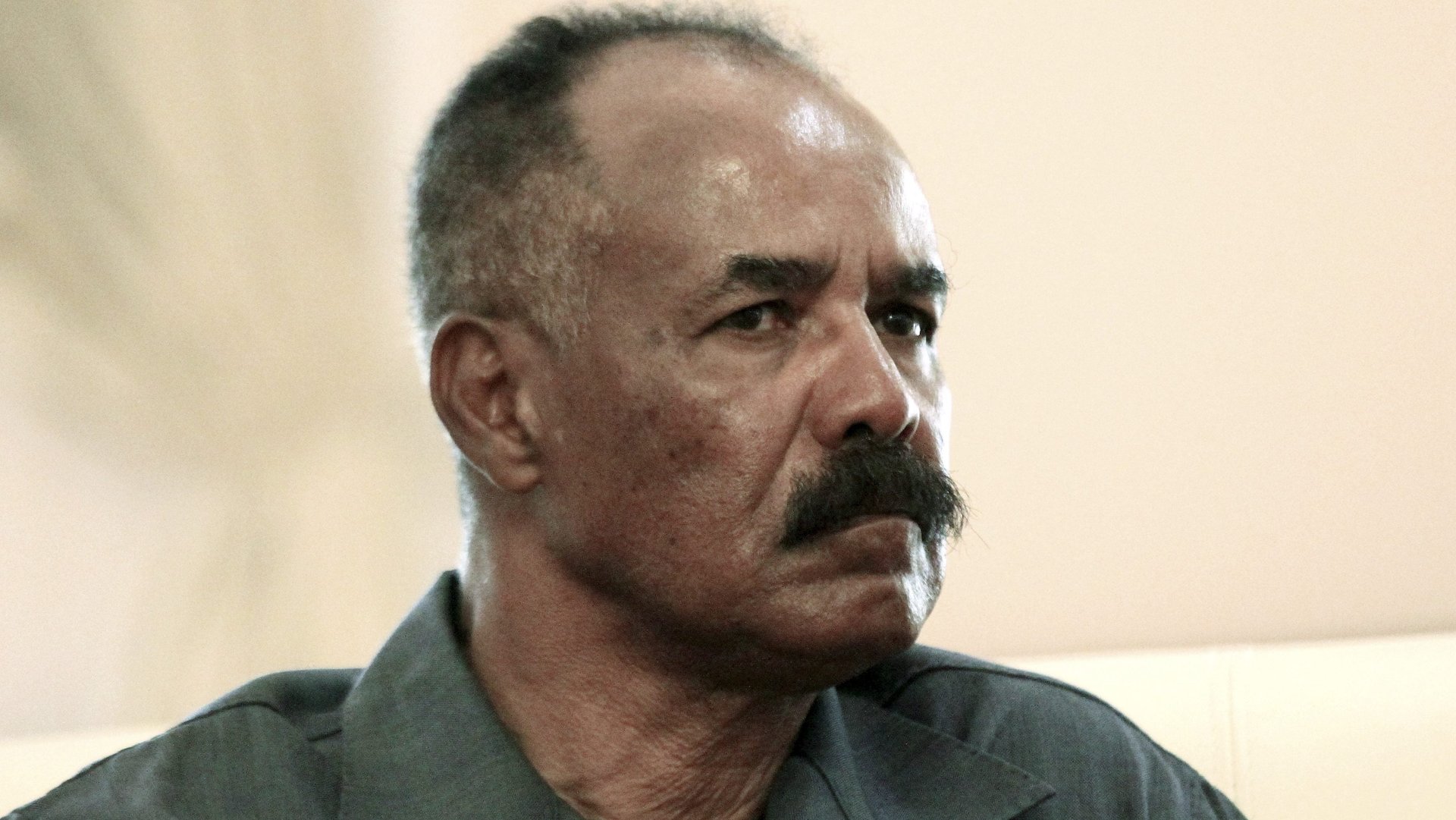The Netherlands has expelled Eritrea’s top diplomat for forcing Eritreans to pay a “diaspora tax”
The Netherlands has expelled Eritrea’s top diplomat after finding increasing evidence that it was forcing Eritreans who fled the country to pay a “diaspora tax” in order to gain services.


The Netherlands has expelled Eritrea’s top diplomat after finding increasing evidence that it was forcing Eritreans who fled the country to pay a “diaspora tax” in order to gain services.
In a letter to parliament, Dutch foreign affairs minister Halbe Zijlstra declared Tekeste Ghebremedhin Zemuy persona non grata and asked him to leave the country. Zijlstra said the measure was meant to show that they wouldn’t “tolerate these unwanted practices” and that the Eritrean government should stop them, according to Reuters. The Dutch government, however, said it won’t close the entire embassy and urged Eritreans to report any offenses.
“In light of the continuous intimidation and force used in the collection of diaspora tax and its resulting social and political unrest, the cabinet is forced to give the Eritrean government a powerful signal,” he said.
President Isaias Afwerki’s government levies a 2% tax on its diaspora population, including those in other European nations like Belgium, Italy, Germany, Sweden, and the United Kingdom. The payments are made in several ways including paying directly to embassies, depositing in a bank in Dubai, or even through in-person or courier payments in the capital Asmara. Those paying include hundreds of thousands of Eritreans who have fled Africa’s so-called hermit kingdom, fearing conscription and a government accused of human rights abuses.
The reasons as to why the government collects these services and how they use them are shrouded in a lot of mystery and uncertainty. However, researchers have concluded that it lacks a clear basis in law. A 2017 study by Tilburg University showed that the two proclamations that form the legal foundation for the tax collection were meant for people living in Eritrea or didn’t contain any clearly stated objective. The country’s parliament, which has the sole authority to impose taxes, has also not convened since 2001.
The United Nations Security Council has also condemned the collection of these taxes, noting in resolution 2023 in 2011 that Eritrea was using “extortion, threats of violence, fraud and other illicit means to collect taxes outside of Eritrea from its nationals or other individuals of Eritrean descent.” The Tilburg study showed that failure to pay the taxes resulted in denial of access to consular services, refusing food vouchers for family members back home, limiting them from accessing remittances, besides social exclusion and vilification.
In 2016, the Dutch parliament adopted a resolution in which the foreign ministry was asked to investigate the “diaspora tax.” Zijlstra said that when Eritrean diplomats were confronted about the collection of the taxes, there was “not an attempt by the Eritrean side to compromise on the matter.”